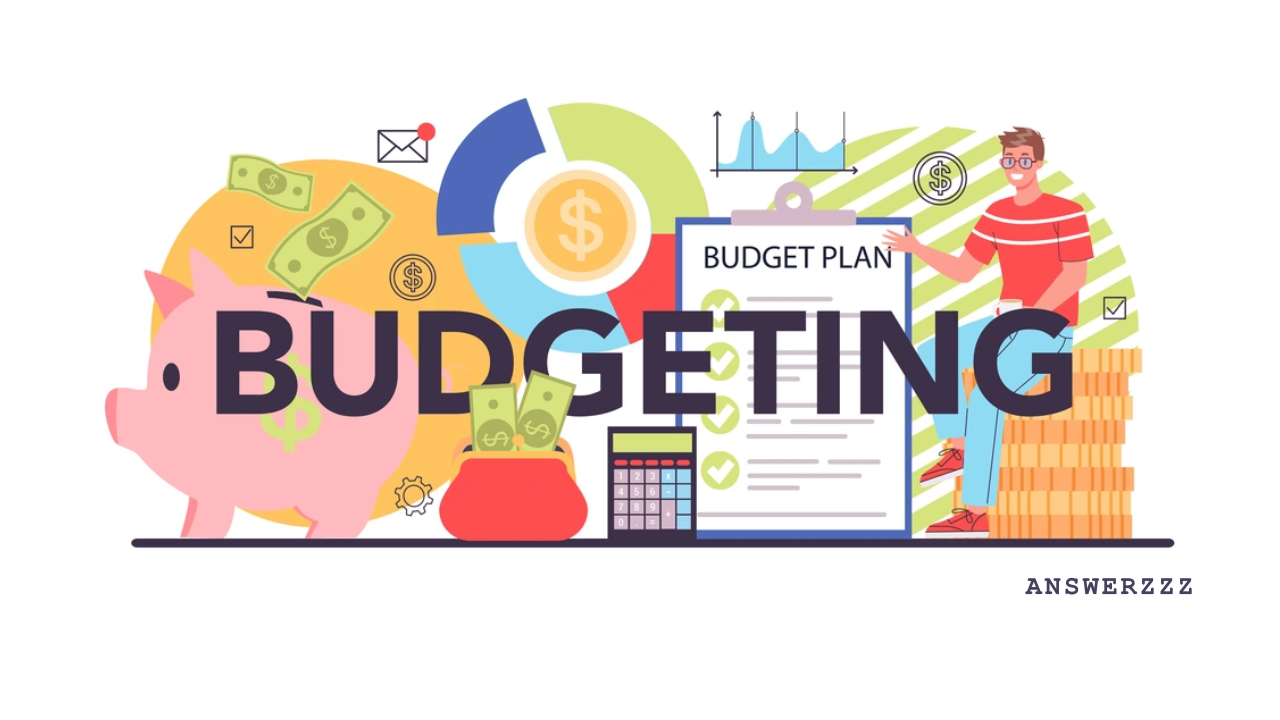Budgeting is one of the fundamental skills everyone should develop for effective financial management. Whether you are a student, a young professional, or someone looking to revamp your financial strategy, understanding how to budget can empower you to take control of your finances, save for your future, and achieve your financial goals. In this comprehensive guide, we will explore the importance of budgeting, different budgeting methods, practical steps to create a budget, and tips to stick to it.
Why Budgeting is Essential

Budgeting is crucial for several reasons:
1. Financial Control
A budget provides clarity on where your money goes each month. This transparency helps you identify unnecessary expenditures and areas where you can cut back, allowing you to allocate funds more effectively.
2. Goal Setting
Creating a budget encourages you to set short-term and long-term financial goals. Whether it’s saving for a vacation, a new car, or retirement, having a budget helps you outline steps to achieve these objectives.
3. Avoiding Debt
By keeping track of your spending and income, you can avoid overspending and accumulating debt. Budgeting encourages you to live within your means and prioritize essential expenses over wants.
4. Emergency Preparedness
Budgeting enables you to build an emergency fund. Having savings set aside for unexpected expenses, such as medical emergencies or car repairs, can reduce financial stress and prevent you from relying on credit.
5. Financial Awareness
A budget fosters financial literacy. By understanding your financial habits, you become more aware of your spending patterns and can make informed decisions about your money.
Understanding Your Income and Expenses
Before diving into the nitty-gritty of budgeting, it’s essential to understand the two primary components of your budget: income and expenses.
Income
Income refers to the money you earn, which can come from various sources, including:
- Salaries or wages
- Freelance or side job income
- Interest or dividends from investments
- Rental income
- Government benefits (if applicable)
It’s crucial to calculate your net income, which is the amount you receive after taxes and other deductions.
Expenses
Expenses are the costs associated with your living, which can be divided into two categories:
- Fixed Expenses: These are regular, unchanging costs, such as rent, mortgage payments, insurance, and loan repayments.
- Variable Expenses: These costs can fluctuate month to month and include groceries, entertainment, dining out, and utility bills.
Understanding your income and expenses will provide a solid foundation for creating your budget.
Choosing a Budgeting Method
There are several budgeting methods available, each with its advantages. Here are three popular approaches to consider:

3.1 Zero-Based Budgeting
Zero-based budgeting is an approach where every dollar of your income is allocated to specific expenses, savings, or debt repayment until you reach zero. This method encourages you to be intentional with your spending and helps you identify areas where you can save more.
How It Works:
- Calculate your total monthly income.
- List all your expenses (fixed and variable).
- Allocate funds to each category until your income minus expenses equals zero.
3.2 50/30/20 Rule
The 50/30/20 rule is a simple and effective budgeting method that divides your income into three categories:
- 50% for Needs: This includes essential expenses such as housing, utilities, groceries, and transportation.
- 30% for Wants: These are non-essential items like dining out, entertainment, and hobbies.
- 20% for Savings and Debt Repayment: This portion should be allocated to savings, retirement accounts, and paying off debts.
3.3 Envelope System
The envelope system involves using physical envelopes to manage your cash for different spending categories. Each envelope is designated for a specific expense, such as groceries or entertainment. Once the cash in an envelope is gone, you cannot spend any more in that category until the next budgeting period.
This method is particularly effective for controlling discretionary spending.
Creating Your Budget
Now that you understand the importance of budgeting and the different methods available, it’s time to create your budget.
4.1 List Your Income
Start by writing down all sources of income you receive each month. Be sure to include your net income, as this is what you will use for budgeting purposes.
4.2 Identify Fixed and Variable Expenses
Next, list all your expenses. Divide them into fixed and variable categories. This step is crucial because fixed expenses are often unavoidable, while variable expenses offer more flexibility.
4.3 Set Savings Goals
Determine how much you want to save each month. Consider both short-term goals (such as a vacation or a new gadget) and long-term goals (such as retirement or a home purchase).
4.4 Choose a Budgeting Method
Decide on which budgeting method you will use. You may want to combine elements from different methods to create a strategy that works for you.
4.5 Create Your Budget
Using your income, expenses, and chosen budgeting method, create your budget. You can use spreadsheets, budgeting apps, or pen and paper. Ensure your budget is easy to read and follow.
Tracking Your Spending
Once your budget is in place, tracking your spending is essential to ensure you stick to it.
5.1 Record Your Expenses
Keep track of all your expenses, either daily or weekly. Many budgeting apps allow you to categorize your spending automatically, which can save you time. Alternatively, you can maintain a simple spreadsheet to monitor your expenses.
5.2 Review Regularly
Set aside time each week or month to review your spending against your budget. This review will help you identify any overspending or areas where you need to adjust your budget.
Adjusting Your Budget
Life is dynamic, and so are your financial circumstances. It’s essential to revisit and adjust your budget regularly.

6.1 Be Flexible
If you notice that you consistently overspend in one category, adjust your budget accordingly. You may need to reallocate funds from other areas or find ways to cut back on your spending.
6.2 Factor in Irregular Expenses
Irregular expenses, such as car maintenance or annual subscriptions, can catch you off guard. Consider setting aside a small amount each month to cover these costs, so they don’t derail your budget.
6.3 Celebrate Milestones
As you meet your savings goals, celebrate your achievements. Whether it’s treating yourself to a small reward or taking a day off to relax, acknowledging your progress can motivate you to stay on track.
Common Budgeting Mistakes to Avoid
When starting with budgeting, it’s easy to make mistakes that can derail your financial goals. Here are some common pitfalls to avoid:
7.1 Not Being Realistic
Setting an overly ambitious budget can lead to frustration. Ensure your budget reflects your lifestyle and is achievable.
7.2 Ignoring Irregular Expenses
As mentioned earlier, irregular expenses can catch you off guard. Make sure to account for these costs in your budget to avoid overspending.
7.3 Failing to Adjust
Life circumstances change, and so should your budget. Regularly review and adjust your budget to reflect any changes in income or expenses.
7.4 Overlooking Small Expenses
Small purchases can add up quickly. Keep track of these minor expenses, as they can significantly impact your budget.
Tips for Sticking to Your Budget
Sticking to your budget can be challenging, but with the right strategies, you can succeed:
8.1 Use Budgeting Apps
Consider using budgeting apps like Mint, YNAB (You Need a Budget), or EveryDollar to simplify tracking your expenses and managing your budget. These apps can automate some processes and provide insights into your spending habits.
8.2 Hold Yourself Accountable
Share your budgeting goals with a trusted friend or family member. Having someone to hold you accountable can help you stay committed to your financial plan.
8.3 Create a Reward System
Establish a reward system for meeting your budgeting goals. This could be a small treat or a fun activity, which can motivate you to stick to your budget.
8.4 Stay Educated
Continue to educate yourself about personal finance. Reading books, and blogs, or attending workshops can provide valuable insights and help you improve your budgeting skills.
![]()
Budgeting is a vital skill that can empower you to take control of your finances. By understanding your income and expenses, choosing a suitable budgeting method, and diligently tracking your spending, you can achieve your financial goals and build a secure financial future. Remember that budgeting is a journey; it takes time and practice to refine your approach. With determination and commitment, you can master budgeting and pave the way for financial success.



